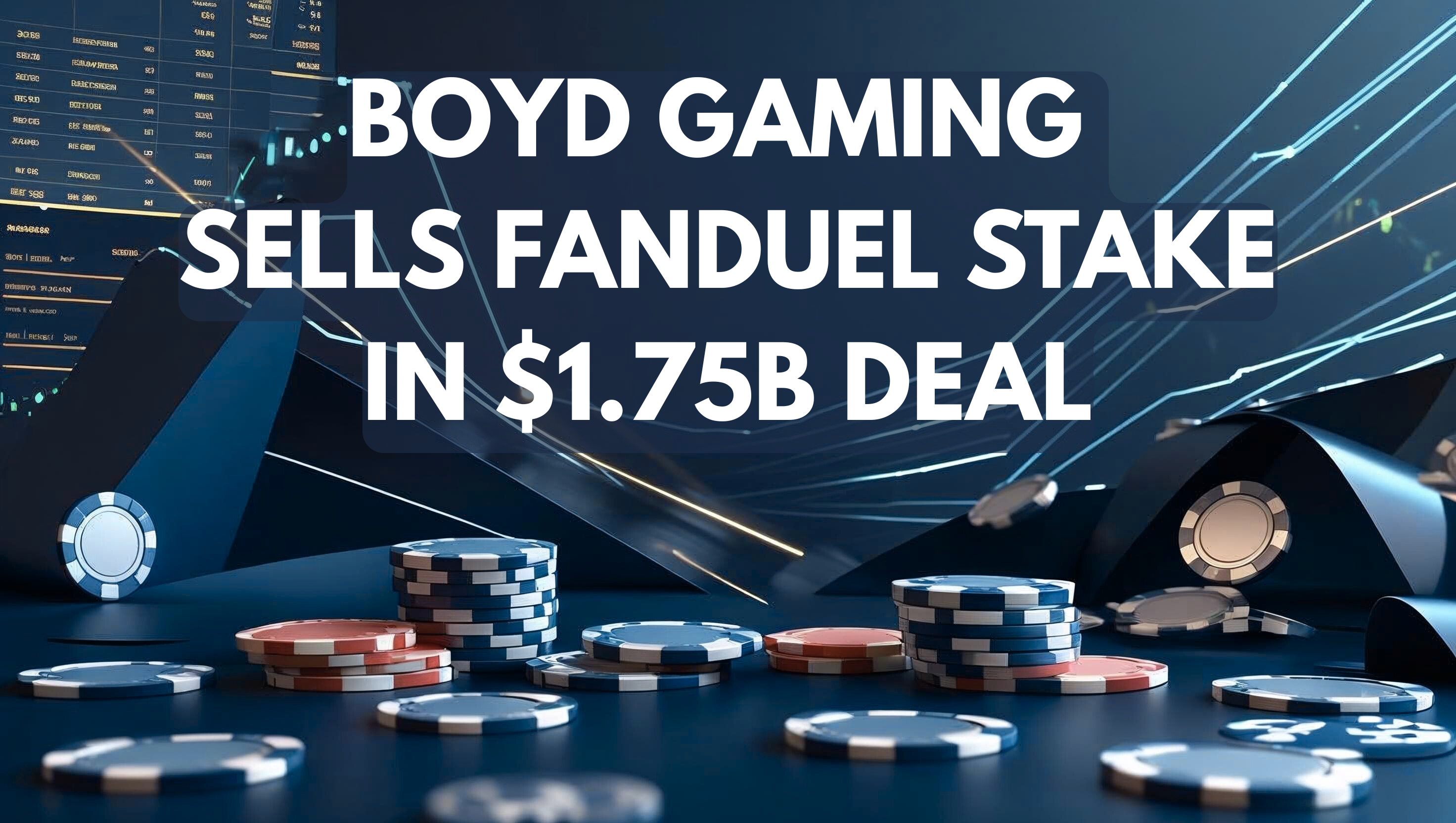Boyd Gaming Sells FanDuel Stake in $1.75B Deal
A Strategic Pivot and Industry Signal

Miguel Spiteri
Marketing Manager - Pyaza
Introduction
Overview: Boyd Exits FanDuel Early in $1.75 Billion Sale
In a move that surprised few but arrived earlier than expected, Boyd Gaming has sold its remaining 5% stake in FanDuel to Flutter Entertainment for a total of $1.75 billion, securing Flutter full ownership of the U.S.'s top sportsbook operator. The transaction - finalized three years ahead of the original 2028 schedule, not only cements Flutter’s dominance in the digital betting space but also leaves Boyd with a streamlined balance sheet and approximately $2 billion in liquidity to fuel its next strategic chapter.
The deal, comprised of $1.55 billion for Boyd’s equity stake and approximately $205 million related to revised market access agreements, represents a consolidation milestone in the U.S. gaming landscape.

Why Boyd’s Timing Matters
Selling its FanDuel position earlier than expected signals Boyd’s intention to pivot aggressively in a rapidly evolving market. Analysts note that Boyd’s lease-adjusted leverage ratio will now fall below 2x, positioning it as one of the most financially agile regional operators in the U.S. gaming sector.
While debt reduction is an obvious next step, industry watchers believe Boyd may pursue a more ambitious path. Options under consideration include share buybacks, special dividends, or targeted acquisitions.
Is Penn Entertainment in Boyd’s Crosshairs?
Boyd’s newly liquid position has reignited speculation around a potential acquisition of Penn Entertainment. Boyd previously made a reported $9 billion offer in 2024, aiming to acquire Penn’s retail casino operations while Flutter would absorb Penn’s digital assets, including ESPN Bet.
While that proposed structure may need reworking - given Flutter’s now complete control of FanDuel, the underlying logic remains. Penn’s weakened position, including activist investor pressure from HG Vora Capital and a declining market cap, makes it a possible takeover target.
Any such deal would involve negotiating with Gaming and Leisure Properties Inc. (GLPI), Penn’s real estate partner, and likely require a carve-out or third-party buyer for Penn’s digital portfolio.
Not Just a Sale: The Evolving Strategies in U.S. Gaming Mergers & Acquisitions
More than a transaction, Boyd’s exit and Flutter’s consolidation highlight two emerging strategies in U.S. gaming M&A:
Flutter is doubling down on long-term profitability through full digital ownership and cost efficiency.
Boyd has positioned itself as a lean, liquid potential consolidator capable of opportunistic expansion.
As public market valuations soften and digital sentiment fluctuates, strategic players are no longer waiting for ideal conditions - they’re shaping them.

Conclusion
At Pyaza, we see this deal as another indicator that U.S. gaming M&A is entering a new phase. Companies that act decisively, like Boyd and Flutter, are poised to lead the next wave of industry consolidation. Whether Boyd moves on Penn or another target, its liquidity and balance sheet flexibility make it one of the most closely watched players in the market.
Download the Pyaza APP to follow our coverage, connect with the team, and get involved in upcoming creator campaigns.